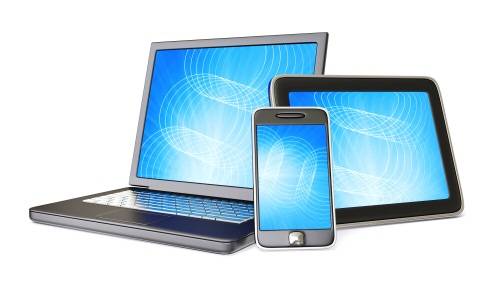
When is a tablet a PC? Apparently when it can garner a catchy hook for a desktop survey from yet-another analyst firm. In this case, Canalys is making the claim that, if you count iPads and other tablets as PCs, then suddenly a market that looked to be in decline is suddenly as rosy as, well, an apple.
It really is a tale of two analysts: according to the Gartner 4Q global PC report that came out last month, shipments of PCs, which Gartner describes as the desktops and laptops with which we’re usually familiar, went down 4.9% in the last quarter of 2012.
And tablets, Gartner said, were a big reason for the decline.
“Whereas as once we imagined a world in which individual users would have both a PC and a tablet as personal devices, we increasingly suspect that most individuals will shift consumption activity to a personal tablet, and perform creative and administrative tasks on a shared PC,” said Mikako Kitagawa, principal analyst at Gartner. “There will be some individuals who retain both, but we believe they will be exception and not the norm. Therefore, we hypothesize that buyers will not replace secondary PCs in the household, instead allowing them to age out and shifting consumption to a tablet.”
Kitagawa’s perception reflects what a lot of us are seeing in our own homes: instead of replacing family member’s PCs with another PC device, many people are opting to be multi-tablet families instead.
Hold On, Pessimists!
But if you take the alternate world view that iPads are, under the strictest definition, personal computing devices and therefore are “PCs,” the picture is far less bleak. In this Spock-with-a-beard-alternate universe, where tablets are PCs, Canalys reports, “[w]orldwide PC shipments increased 12% year-on-year in Q4 2012 to reach 134.0 million units, with pads accounting for over a third.”
Oh, and don’t forget the grabber headline: One in six PCs shipped in 2012 4Q was an iPad.
You might, given my choice of words, that I hold the Canalys report in somewhat lower regard than the Gartner report.
If so, you’d be correct.
While “personal computing device” is a broad enough term that I could see it including tablets and even smartphones, the simple fact is that lumping tablets in with PCs doesn’t really make sense.
The two are fundamentally different. Unlike PCs, tablets are hardly configurable, barely expandable and to date it’s been hard to actually consider them even adequate platforms for productivity applications or creation of data and content.
This is not to say the Canalys report is completely without useful information. Buried deep in the release about the report was this piece of news:
“Despite record shipments, Q4 saw Apple’s pad share dip to 49%, becoming the first quarter it has not controlled over half the market. ‘Apple timed the launch of the iPad mini well,’ said Pin-Chen Tang, Canalys Research Analyst. ‘Its success proves there is a clear demand for pads with smaller screens at a more affordable price. Without the launch, Apple would surely have lost more ground to its competitors.'”
If accurate, this would mark the first quarter that Apple’s vaunted iPad did not hit 50% market share. The Canalys news did not specify the tablets to which the iPad product line was losing ground, but it did note that Samsung shipped 7.9 million tablets in Q4, a 226% increase for the South Korean company. Android-based tablets, Canalys reported, accounted for 46% of tablets shipped in 4Q 2012.
Small Is The New Large
The upshot here isn’t so much that the iPad is losing ground to the Android tablets, but rather that low-cost smaller form-factor devices are garnering a lot more sales these days. If Apple hadn’t kicked off its own entry in this niche, it would have had some serious problems.
If anything, the popularity of the smaller tablet devices proves the point against calling these devices PCs. You can make a good case that larger tablets can better be used as work/production devices, but there’s no way anyone could classify an iPad Mini or Kindle Fire as something with which you could get much real work done.
For simplicity’s sake, it makes a lot more sense to keep PCs and tablets in separate market categories, because that’s how customers see them: separate devices with their own distinct uses.
Image courtesy of Shutterstock.

















